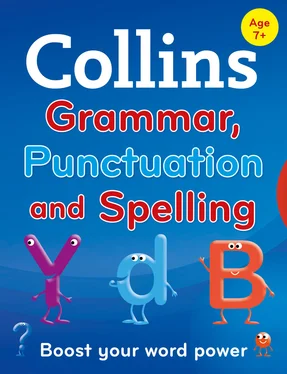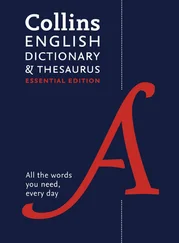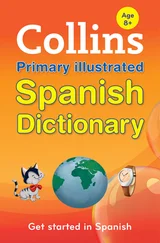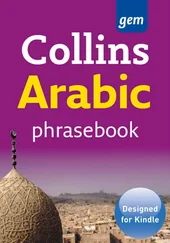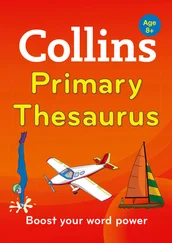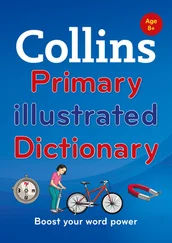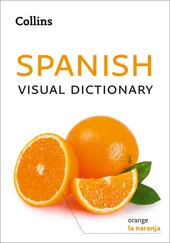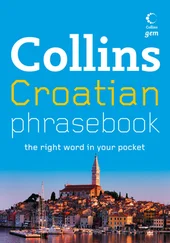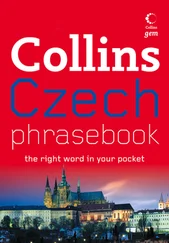Contents
Cover
Title Page
Introduction Introduction Collins Primary Grammar, Punctuation and Spelling has been designed to support all pupils who are studying grammar, punctuation and spelling from age 7 to 11, whether this is for exams or to revise the key building blocks of the English language. It contains the rules and advice that will help students get to grips with these essential aspects of the English language. There are clear, easy-to-follow explanations of how grammar works, what punctuation does, and how to spell correctly. Each section – grammar, punctuation and spelling – is laid out in an open, attractive design that guides the user easily through the information provided. Dozens of examples show exactly how the rules of English work. The final section is a dictionary list of words that pupils must know how to spell. These have been specially selected for this age group based on real-life experience from Spelling Bees conducted by Collins Dictionaries. The words are written out in full, with their word class clearly shown, along with any other forms such as plurals, comparatives and superlatives, and inflections – all of which are also written in full, making it easy for the pupil to understand. Many helpful tips on spelling are also included throughout the spelling dictionary section to make learning easier. Collins Primary Grammar, Punctuation and Spelling is an indispensable guide to the structure and rules of English, offering clear and accessible guidance for pupils from age 7 to 11. Explore further at www.collins.co.uk/homeworkhelp for games, activities and extra support for parents and children.
Grammar
What is grammar?
Words
Phrases
Clauses
Sentences
Making words
Writing good English
Synonyms
Antonyms
Layout
Punctuation
What is punctuation?
Letters
Full stop
Question mark
Exclamation mark
Comma
Apostrophe
Inverted comma
Bracket
Dash
Semicolon
Colon
Hyphen
Bullet point
Ellipsis
Spelling
The alphabet
Syllables
Letters and sounds
Consonants and their phonemes and graphemes
Vowels and their phonemes and graphemes
Digraphs and trigraphs
Adding endings to words
Irregular verbs
Adding prefixes and suffixes
Common endings in words
Choosing between endings
Words ending in ough
Silent letters
Some very common words that you have to know
Homophones
How to improve your spelling
Dictionary
How to use the Spelling Dictionary
Aa
Bb
Cc
Dd
Ee
Ff
Gg
Hh
Ii
Jj
Kk
Ll
Mm
Nn
Oo
Pp
Qq
Rr
Ss
Tt
Uu
Vv
Ww
Yy
Zz
Index
Copyright
About the Publisher
Introduction
Collins Primary Grammar, Punctuation and Spelling has been designed to support all pupils who are studying grammar, punctuation and spelling from age 7 to 11, whether this is for exams or to revise the key building blocks of the English language.
It contains the rules and advice that will help students get to grips with these essential aspects of the English language. There are clear, easy-to-follow explanations of how grammar works, what punctuation does, and how to spell correctly. Each section – grammar, punctuation and spelling – is laid out in an open, attractive design that guides the user easily through the information provided. Dozens of examples show exactly how the rules of English work.
The final section is a dictionary list of words that pupils must know how to spell. These have been specially selected for this age group based on real-life experience from Spelling Bees conducted by Collins Dictionaries. The words are written out in full, with their word class clearly shown, along with any other forms such as plurals, comparatives and superlatives, and inflections – all of which are also written in full, making it easy for the pupil to understand. Many helpful tips on spelling are also included throughout the spelling dictionary section to make learning easier.
Collins Primary Grammar, Punctuation and Spelling is an indispensable guide to the structure and rules of English, offering clear and accessible guidance for pupils from age 7 to 11.
Explore further at www.collins.co.uk/homeworkhelpfor games, activities and extra support for parents and children.
Grammar
What is grammar?
Grammar is the rules of a language that tell you how to organise words to make sentences. Think about language as a series of ‘blocks’ that you put together. There are rules about how these blocks can be joined. The blocks are:
• the word
• the phrase
• the clause
• the sentence
This book explains what these are, how they work and how you combine them to write clear and effective English.
Words
Word class
Every word in a language can be sorted into a group according to what it does within a sentence. These groups are known as word classes or parts of speech. Some words can belong to a number of different word classes. This section explains what the word classes are and what they do.
Nouns
A noun is a word that names something. In a sentence, the nouns are the words that tell you which people, places or things are involved.
There are different kinds of nouns.
Common nouns
These nouns are used to name every example of a certain type of thing. They start with a small letter.
There are three different types of common nouns.
Concrete nouns
A concrete noun is a physical object that you can actually touch:
Abstract nouns
An abstract noun is something that does not physically exist and so cannot be touched:
Collective nouns
A collective noun is a group or collection of things:
Proper nouns
These nouns are used for a particular person, place or thing. They start with a capital letter.
Singular and plural
The singular form of a noun is used to mean only one of a thing:
The plural form is used to mean more than one of a thing:
| two pictures |
|
ten elephants |
The possessive
The possessive (which is sometimes called the possessive case) is used to show that a person or thing owns another person or thing. You add ’s to the end of the noun that is the owner:
my mother’s sister
Nick’s football boots
the cat’s paw
the stadium’s roof
If the noun is a plural that already ends in s, you put an apostrophe at the end of the word:
the soldiers’ uniforms
those boys’ bicycles
African elephants’ ears
tractors’ wheels
You don’t use ’s to make a plural noun. It is only used for showing the possessive.
Adjectives
An adjective is a word that tells you something about a noun. Adjectives can describe nouns in a number of ways:
how they feel or what they are like:
Читать дальше
